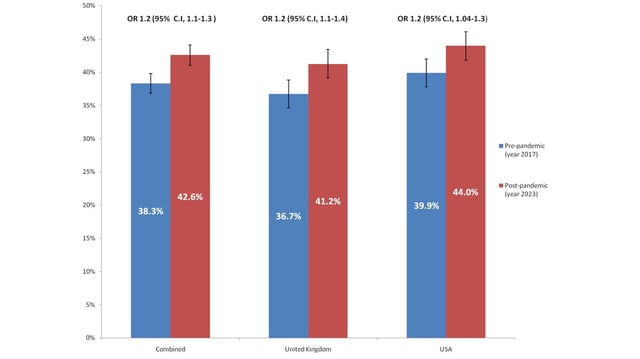Overview
- A global survey found disorders of gut-brain interaction rose from 38.3 percent in 2017 to 42.6 percent in 2023.
- Irritable bowel syndrome prevalence climbed 28 percent from 4.7 to 6.0 percent, while functional dyspepsia surged nearly 44 percent from 8.3 to 11.9 percent.
- Researchers used Rome Foundation diagnostic criteria on nationally representative samples to conduct the first direct, population-level comparison before and after the pandemic.
- Study participants with long COVID had significantly higher odds of gut-brain disorders and reported increased anxiety, depression, and poorer quality of life.
- Authors and experts say the findings underscore an urgent need for revised clinical frameworks and deeper research into the gut-brain axis in post-COVID care.

